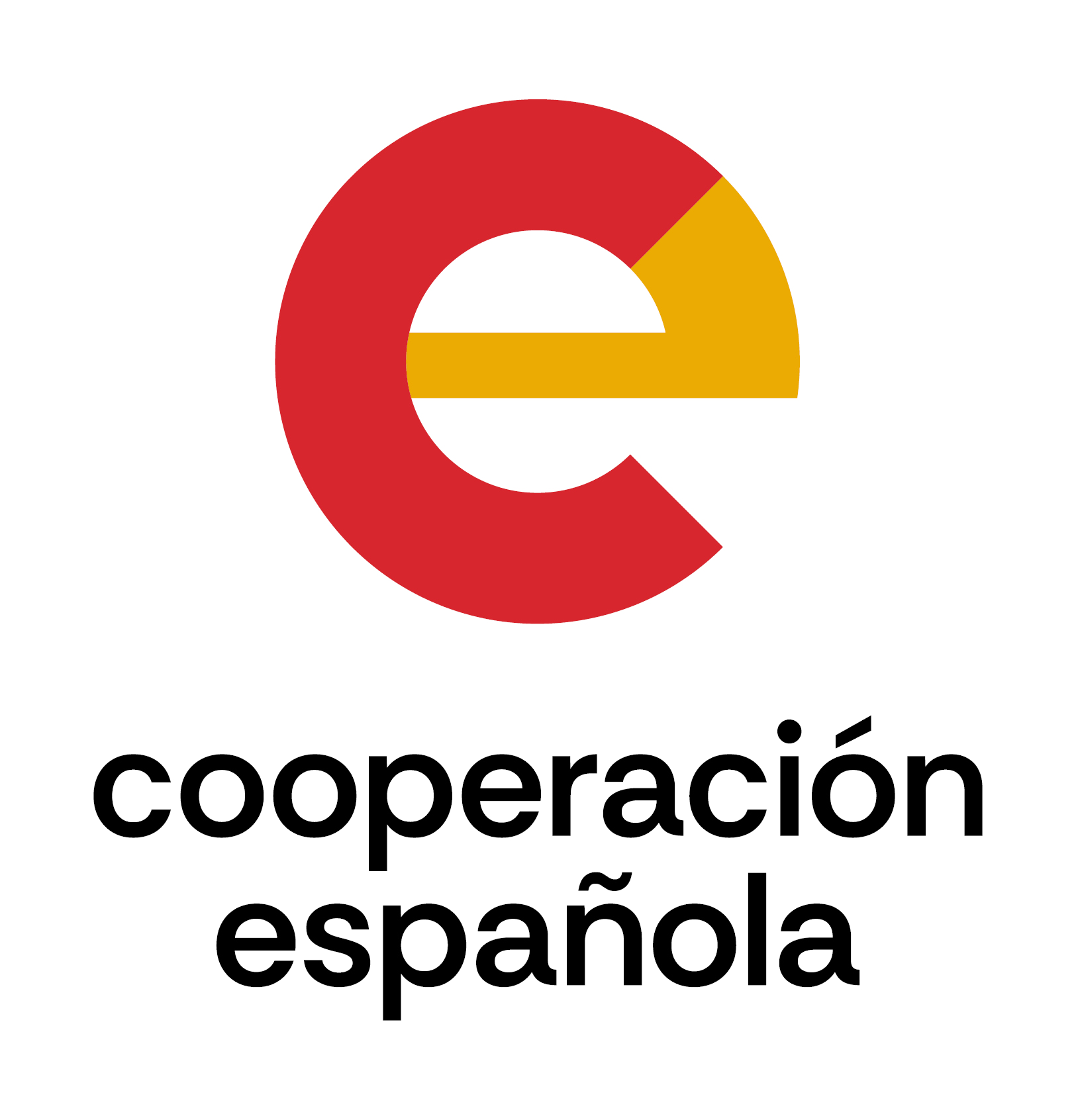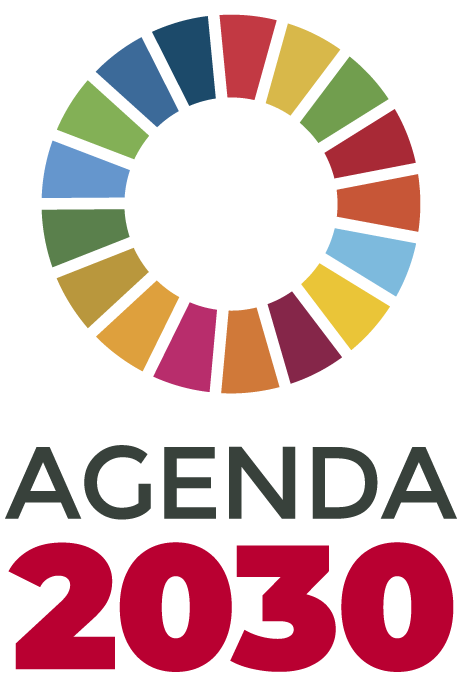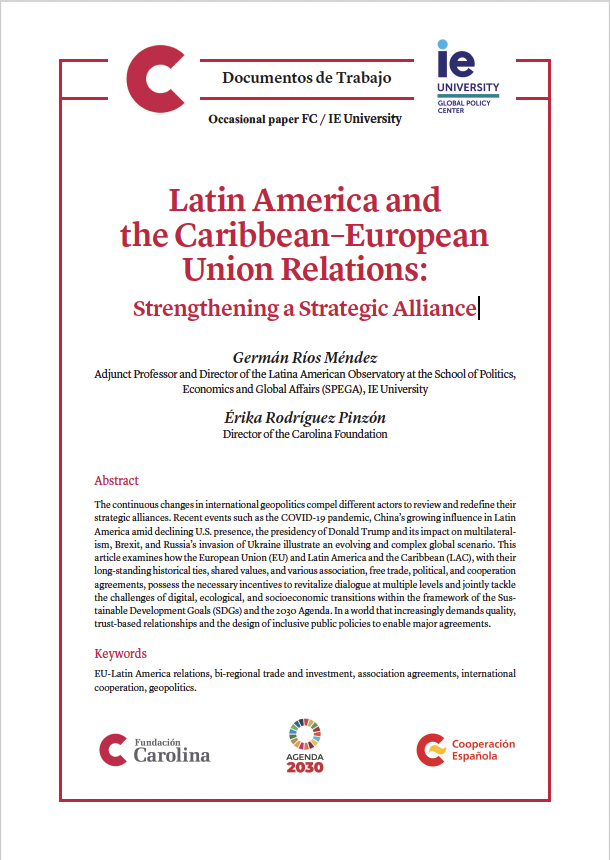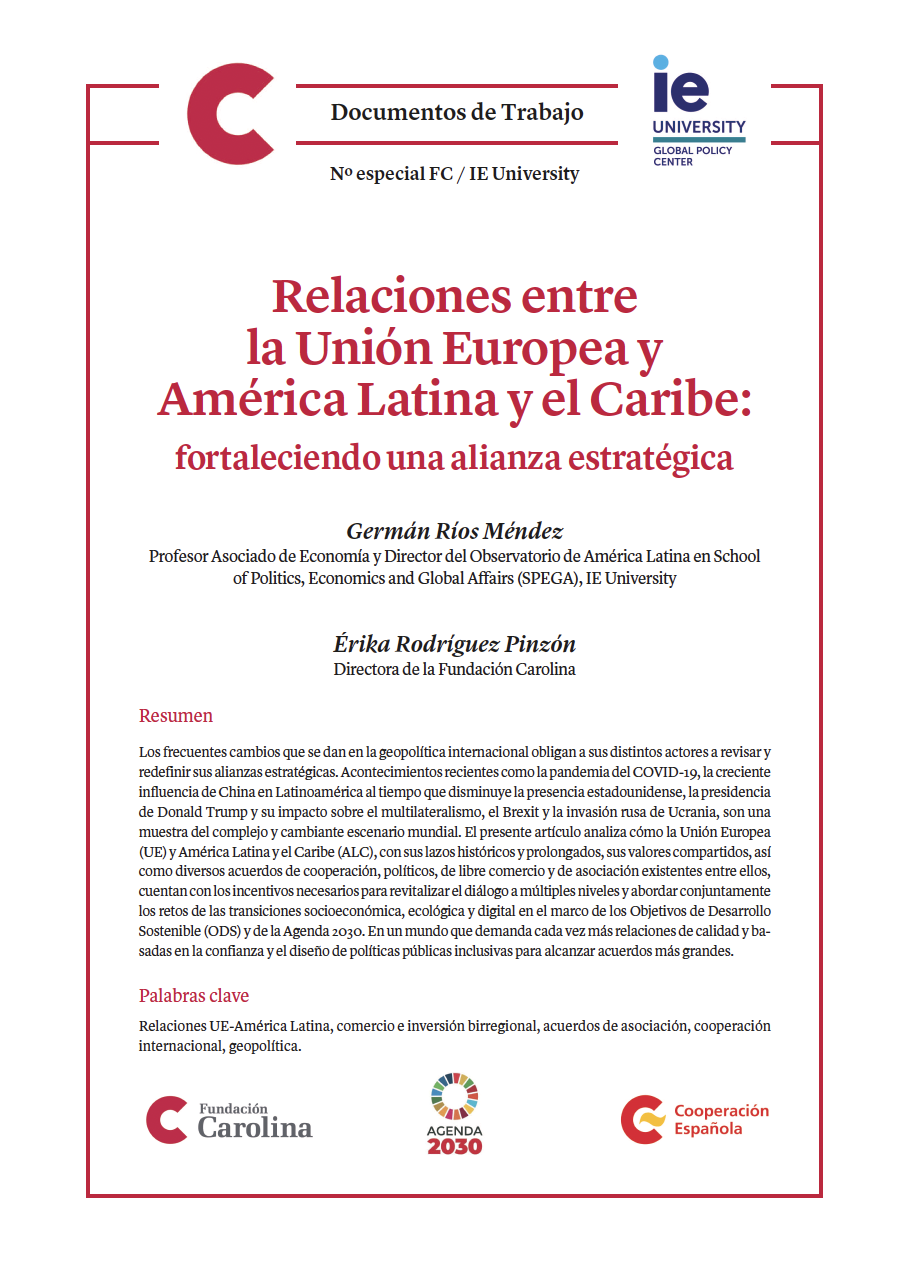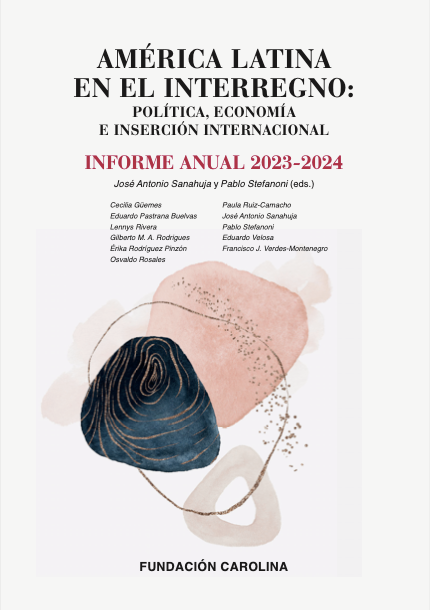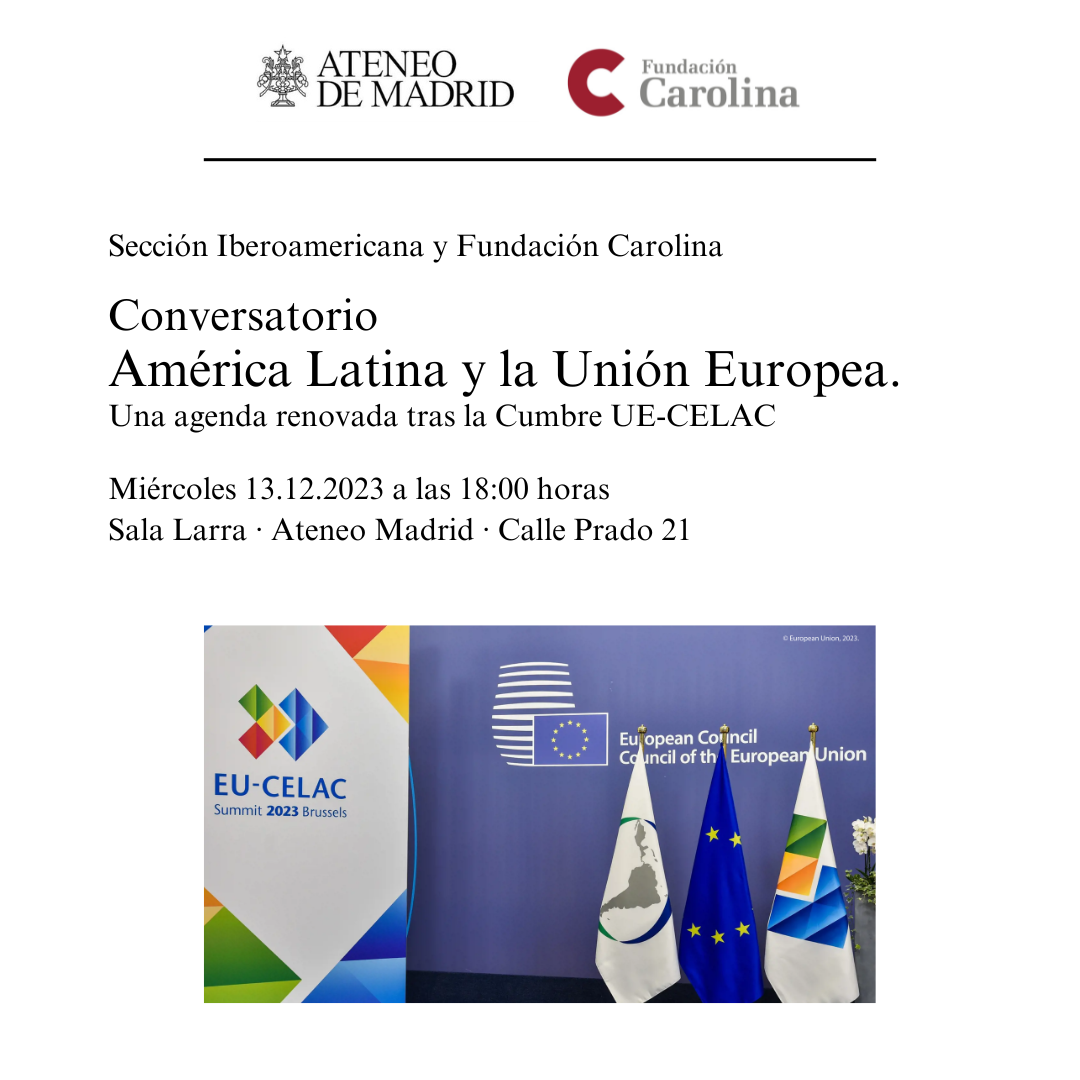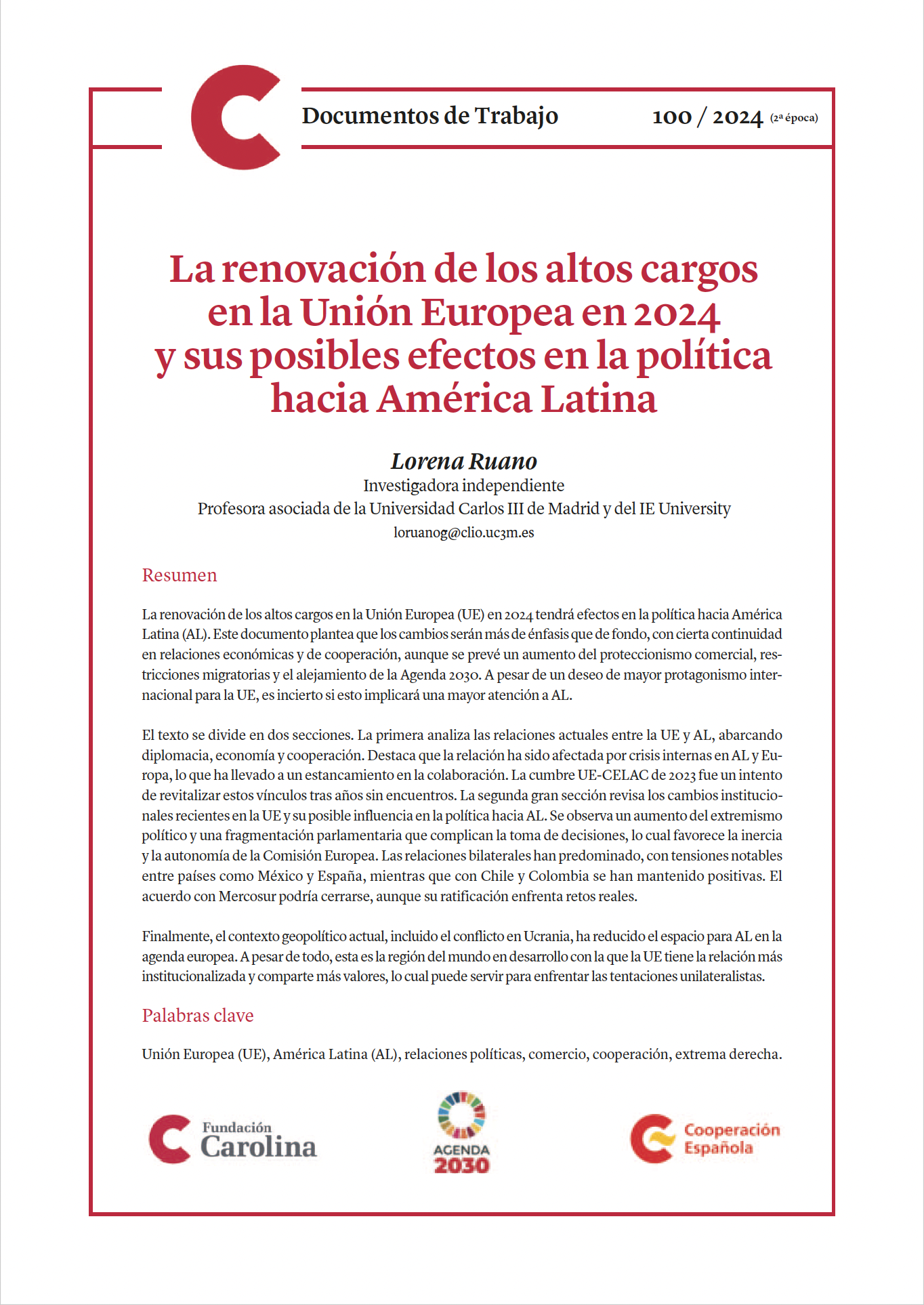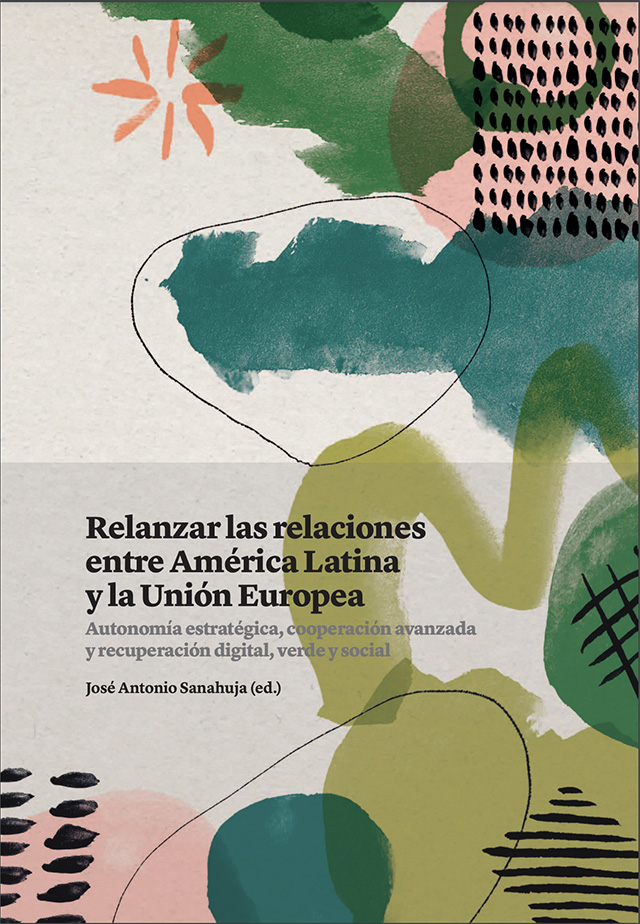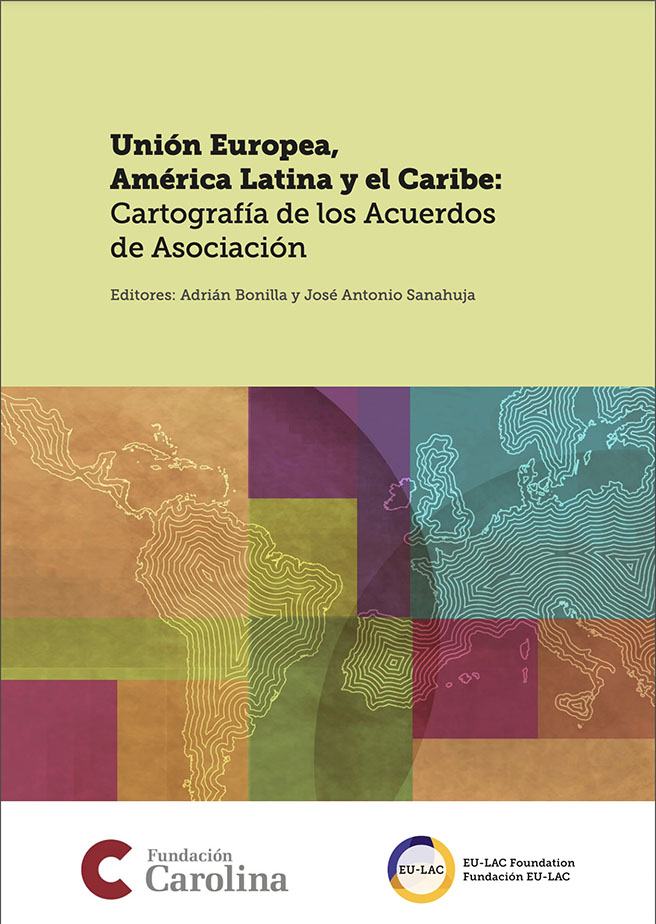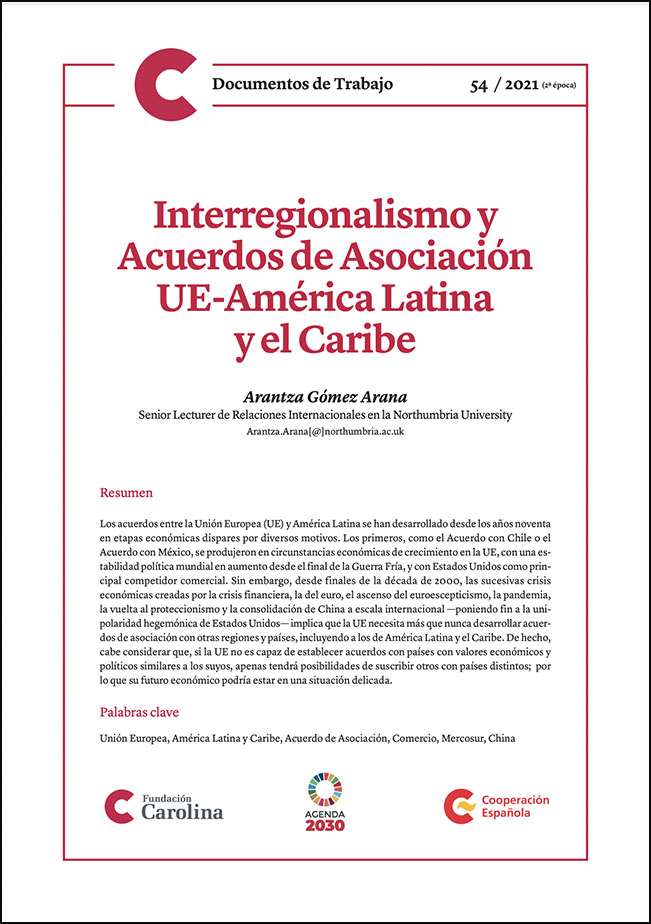The continuous changes in international geopolitics compel different actors to review and redefine their strategic alliances. Recent events such as the COVID-19 pandemic, China’s growing influence in Latin America amid declining U.S. presence, the presidency of Donald Trump and its impact on multilateralism, Brexit, and Russia’s invasion of Ukraine illustrate an evolving and complex global scenario.
This article examines how the European Union (EU) and Latin America and the Caribbean (LAC), with their long-standing historical ties, shared values, and various association, free trade, political, and cooperation agreements, possess the necessary incentives to revitalize dialogue at multiple levels and jointly tackle the challenges of digital, ecological, and socioeconomic transitions within the framework of the Sustainable Development Goals (SDGs) and the 2030 Agenda.
In a world that increasingly demands quality, trust-based relationships and the design of inclusive public policies to enable major agreements.
This document is the result of a collaboration between the Global Policy Center of IE University and the Carolina Foundation.

